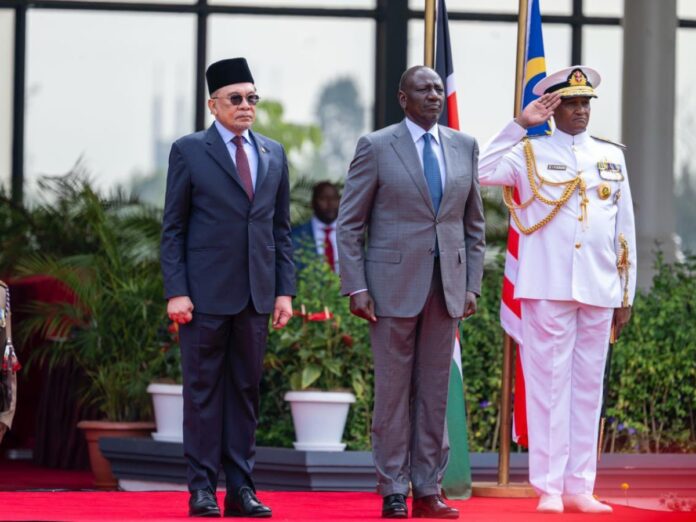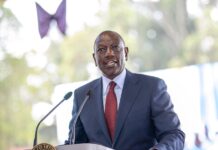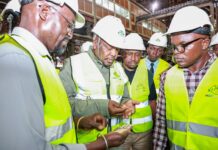Kenya and Malaysia have elevated their six-decade diplomatic relationship to a full strategic partnership, signalling a deliberate pivot from traditional commodity trade towards technology transfer, semiconductors and green energy cooperation.
President William Ruto and visiting Malaysian prime minister Anwar Ibrahim announced the upgrade after bilateral talks at State House on Monday, describing it as a structured framework to accelerate mutual investment and remove lingering barriers.
Ruto hailed Anwar’s commitment to eliminate tariffs on Kenyan beef and agricultural produce as a breakthrough that would open South-East Asia’s markets to Kenyan farmers. In return, Kenya will deepen access for Malaysian electronics, chemicals and palm oil products.
Yet the real prize lies beyond agriculture. Both leaders placed heavy emphasis on digital transformation and high-tech manufacturing. Malaysia has pledged to support Kenya’s nascent semiconductor sector, with Dedan Kimathi University flagged for targeted collaboration in research, training and eventual production.
“We are drawing inspiration from Malaysia and the Asian Tigers that chose excellence over mediocrity,” Ruto told reporters. “Malaysia will help Kenya build semiconductor capabilities and position itself as the manufacturing hub for the African Continental Free Trade Area.”
Anwar, on his first official visit to Kenya in nearly twenty years, promised rapid implementation. “Before President Ruto visits Malaysia early next year, we will finalise the broad parameters and begin execution as early as December or January,” he said.
The partnership extends to infrastructure. Kenya invited Malaysian firms to bid for public-private partnerships in toll roads, power generation and dam construction, while Malaysia sought Kenyan expertise in titanium and rare-earth minerals critical for the energy transition.
Trade between the two nations currently stands at modest levels, dominated by Kenyan tea, coffee and flowers moving east and Malaysian edible oils and electronics flowing west. The strategic accord aims to multiply those volumes while creating new corridors in STEM education, renewable energy and the digital economy.
For Ruto, facing domestic pressure to deliver on industrialisation promises, Anwar’s visit offered both validation and practical pathways. For Malaysia, Kenya represents a strategic gateway to a continent of 1.4 billion consumers under the AfCFTA. The handshake in Nairobi may prove more consequential than either side yet realises.
(348 words)



















